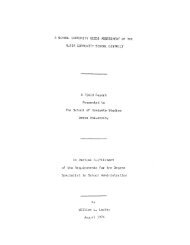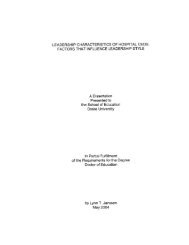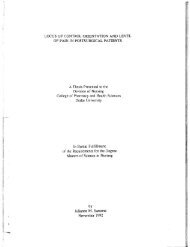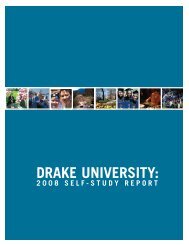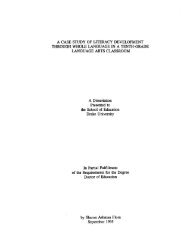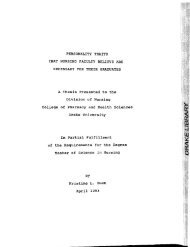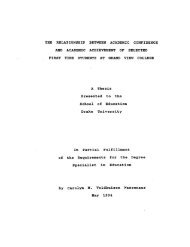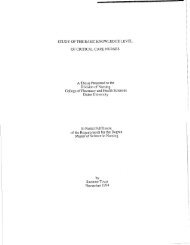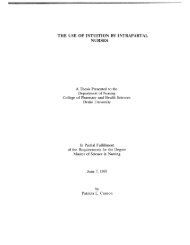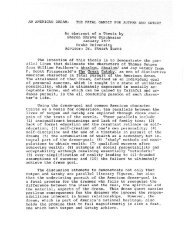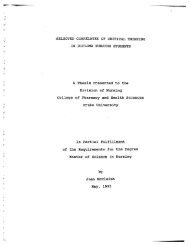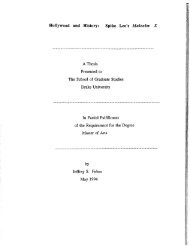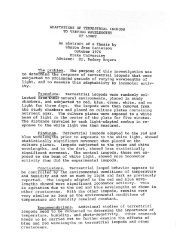View/Open - Drake University
View/Open - Drake University
View/Open - Drake University
You also want an ePaper? Increase the reach of your titles
YUMPU automatically turns print PDFs into web optimized ePapers that Google loves.
. ,....-- I] districts might not hilye the "layel-s of leadenhip and expe*isc<br />
district might<br />
offer. H;lnnautny and Kilnball (2001 ) Saw the necessity of specialized help: "[he findin.%<br />
2%<br />
dra\\. to the special challenges of reform faced by small districts and call for targeted<br />
assist;ln~e to these districts to pool remuces and acquire specialized help when needed" (p<br />
120). The assista~~ce small school practitioners received during structured in-senrjce trainins<br />
as well as individual or small group presentations were seen as \raluable to their learning and<br />
implementation efforts.<br />
In re\.ie\a,ing state-directed reform in education, a school board member caught the<br />
~PII it of rl~e core issue with state policy mandates: "All the mandates in the world aren't going<br />
to make a difference. It has to come from within." Timar and Kirp (1987) offer similar<br />
sentiments: "Escellence cannot be coerced or mandated. Rather, it is a condition to which<br />
indi\.idunls may aspire" (p. 309). Linkinp statehouse policy with classroom practices in says<br />
+'-*.: nl:lke a d j fference for children was the implementer's challense-and lament.<br />
I<br />
129



